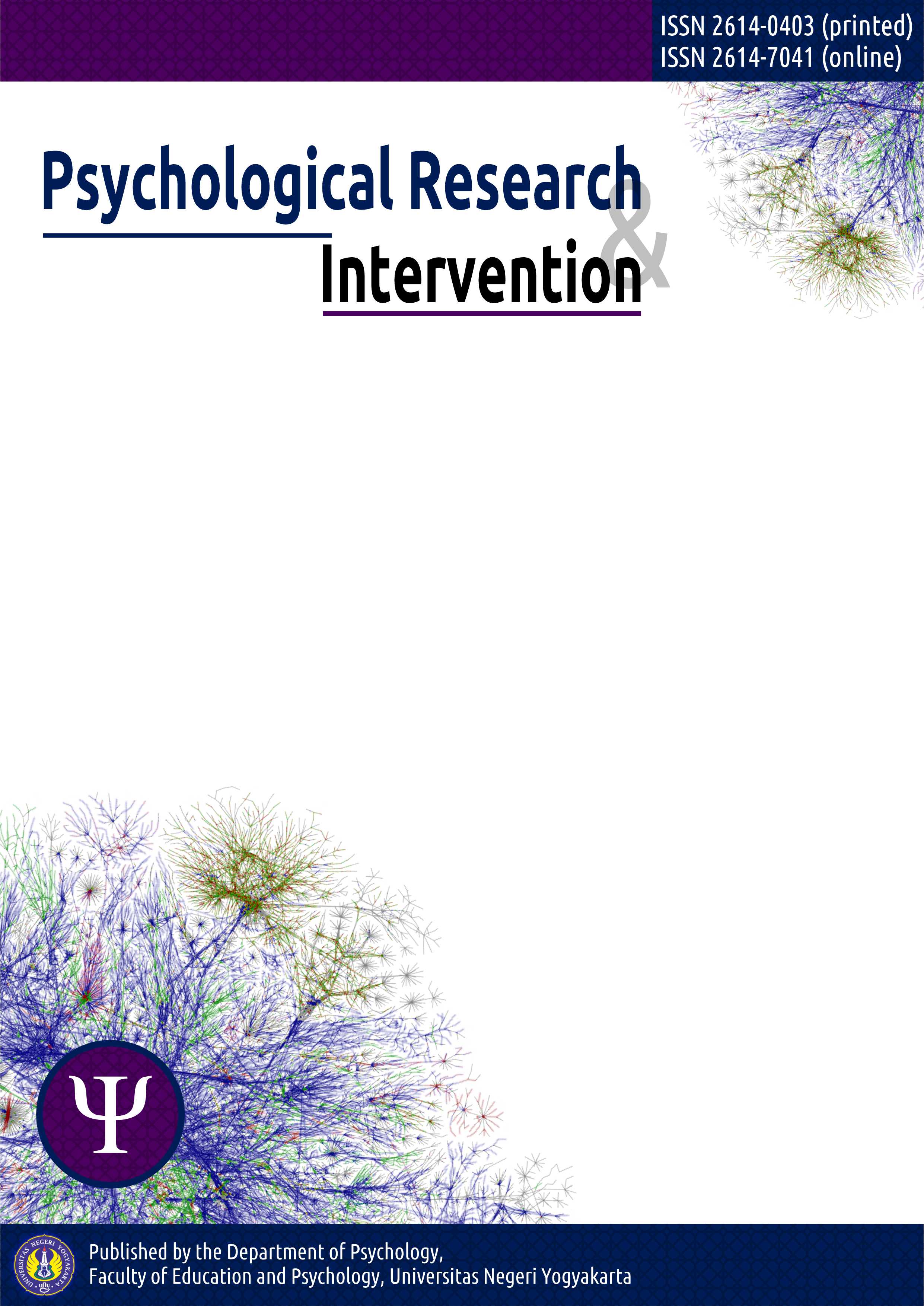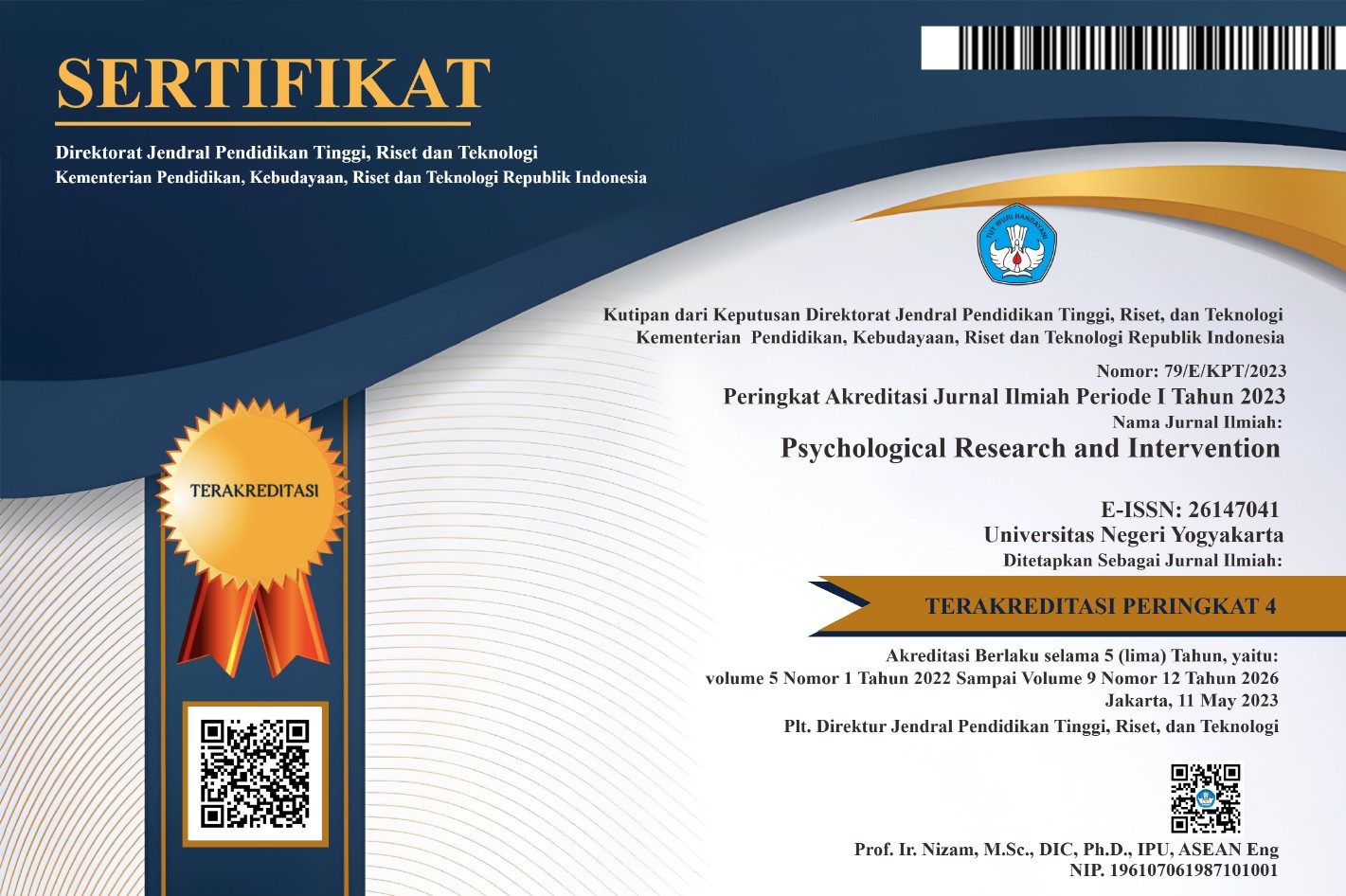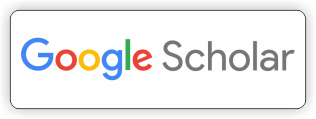The state of self-regulated learning and academic dishonesty of undergraduate students during online learning
DOI:
https://doi.org/10.21831/pri.v5i1.49441Keywords:
academic dishonesty, online learning, self-regulated learningAbstract
The purpose of this study was to determine the condition of academic problems in the form of self-regulated learning and academic dishonesty in students during online learning and to examine the effect of self-regulated learning on academic dishonesty. This type of research is a correlational of quantitative approach. The study was conducted on 410 students in Special Region of Yogyakarta using online self-regulated learning scale and academic dishonesty scale. The results of this study indicate that student's self-regulated learning is mostly in the medium category with percentage of 52%. The aspect of self-regulated learning that has the highest average score is environment structuring, while the lowest aspect is time management. For academic dishonesty, most students are in the moderate category with percentage of 45.6%. this study also shows the Fcount value of 24.471, a significance value of 0.00, and the regression equation Y=23,816-0.090 which means that self-regulated learning has a negative effect on academic dishonesty. Self-regulated learning contributes 5.7% to academic dishonesty while 94.3% is influenced by other factors.References
Aji, Grasinta. (2016). Self-regulated learning pada mahasiswa tahun pertama. Skripsi, tidak diterbitkan, Universitas Sanata Dharma, Yogyakarta.
Anthonysamy, L., Koo, AC., & Hew, SH. (2020). Self-regulated learning strategies and non-academic outcomes in higher education blended learning environments: A one decade review. Educ Inf Technol, 25, 3677-3704. https://doi.org/10.1007/s10639-020-10134-2
David, Laura T. (2015). Academic cheating in college students: Relations among personalvalues, self-esteem and mastery. Procedia Social and Behavioral Sciences, 187, 88 – 92. https://doi.org/10.1016/j.sbspro.2015.03.017
Djamarah, Syaiful B. (2000). Guru dan anak didik dalam interaksi edukatif. Jakarta: Rineka Cipta.
Febriani, Alsa Putri. (2016). Pengaruh lingkungan belajar terhadap proses pembelajaran kelas XI di SMK Negeri 1 Cianjur. JPPHK (Jurnal Pendidikan Politik, Hukum Dan Kewarganegaraan), 11(1).
Harahap, Ade C., & Harahap, Samsul R. (2020). Covid 19: Self regulated learning mahasiswa. Jurnal Pendidikan dan Konseling, 10(1).
Husnan, S., & Pudjiastuti, E. (2015). Dasar-dasar manajemen keuangan, Edisi Ketujuh. Yogyakarta: UPP STIM YKPN.
Huwae, Y., Neve, G., Mariana, M., Jelita, W., & Gina, A. (2019). Gambaran self-regulation pada mahasiswa baru. Skripsi, tidak diterbitkan, Universitas Pembangunan Jaya, Banten.
Palupi, I. D., Hasyim, A., & Yanzi, H. (2013). Faktor-faktor yang mempengaruhi budaya menyontek di kalangan siswa SMA Negeri 1 Seputih Raman Lampung Tengah. Jurnal Kultur Demokrasi, 1(5), 1-14.
Peverly, S. T., Brobst, K. E., Graham, M., & Shaw, R. (2003). College adults are not good atself-regulation: A study on the relationship of self-regulation, note taking, and testtaking. Journal of Educational Psychology, 95(2), 335–346. https://doi.org/10.1037/0022-0663.95.2.335
Puspitawati, Ira. (2021). Hubungan self regulated learning dengan kecurangan akademik pada mahasiswa. Skripsi, tidak diterbitkan, Universitas Gunadarma, Jakarta.
Sugiyono. (2017). Metode penelitian kuantitatif, kualitatif, dan r&d. Bandung: CV Alfabeta.
Sujana, Y.E., & Wulan, R. (1994). Hubungan antara kecenderungan pusat kendali dengan intensi mencontek. Jurnal Psikologi, 21, 18.
Sunarya, P. A., Ladjamuddin, Al-Bahra, & Dewanto, I. J. (2017). Hubungan antara manajemen waktu dengan prestasi belajar mahasiswa program studi DIII Komputerisasi Akuntansi Amik Raharja Informatika. Cyberpreneurship Innovative and Creative Exact and Social Science (CICES), 3(2).
Webometrics Ranking Web of Universities (2021). https://www.webometrics.info/en/asia/indonesia%20, diakses pada 6 Oktober 2021.












